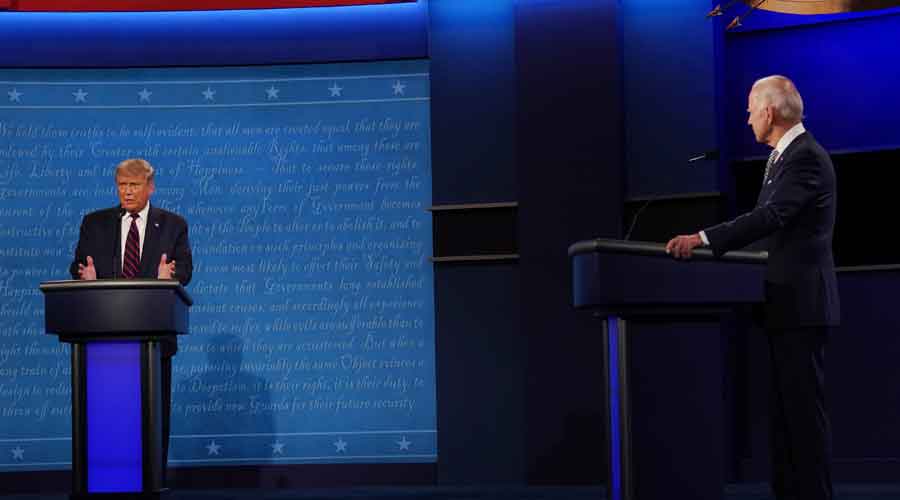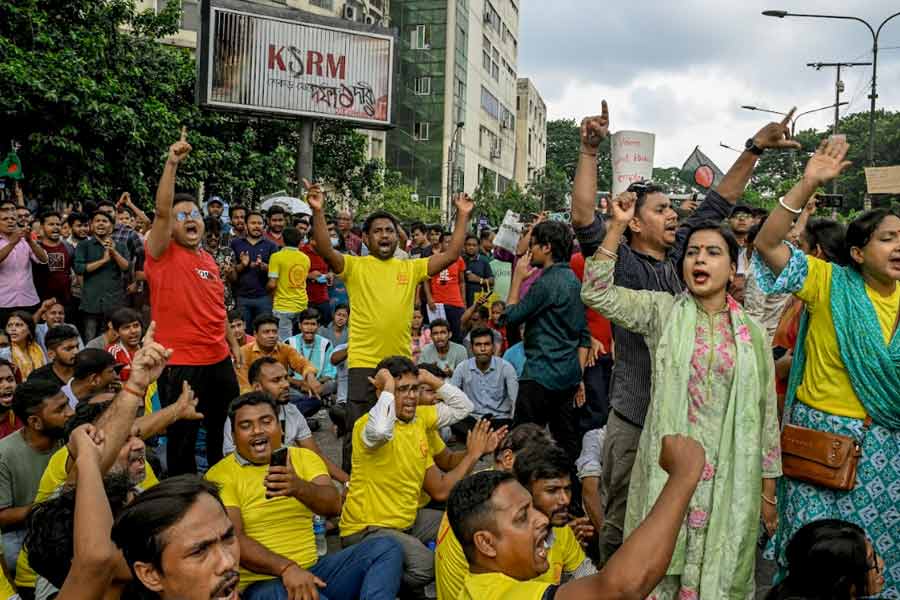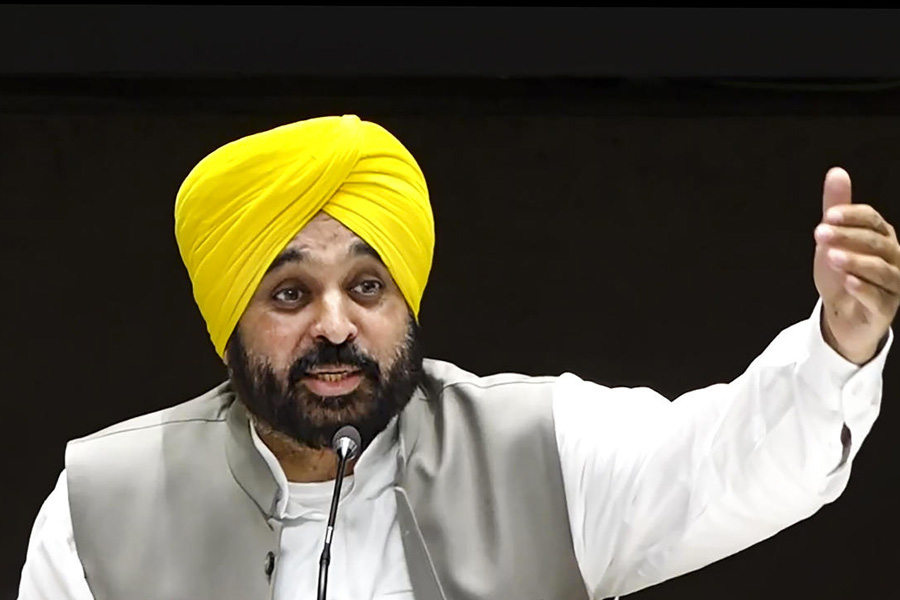The United States of America is set to witness its 59th quadrennial presidential election on November 3, with a campaign enmeshed in an unprecedented quagmire, compounded by a pandemic and its spinoffs. A key format of the electioneering comprises debates between the contestants. Sponsored by the Commission on Presidential Debates, the first of the three debates took place on September 29, while the second one, slated for October 15, has been cancelled. The Republican president, Donald Trump, and his Democratic challenger, Joe Biden, squared off in the first debate (if it could be called that) at Cleveland, Ohio, with social media agog on whether the remaining two debates should be called off since political oratory (of the Obama era) was replaced by chaos, interjections and taunts.
A Covid-positive president rushed home from hospital determined to head for Miami for the second debate and is baulking at the prospect of a virtual one. The third debate, however, will be held on schedule. The vice-presidential debate last week was more mature, but still fell short of expectations.
For the voters, these debates are a major campaign plank. Several universities even organize gatherings at the union room to watch the debate, where a professor moderates a follow-up discussion. Unlike in India, where voters are decidedly secretive about their choice of parties and candidates, American citizens believe in blatant exhibition of their choice. Balconies or driveways don banners and placards announcing their choice of candidate.
This year, the pandemic has restricted large gatherings, although Trump’s supporters have been out in large numbers. Covid-19 also ensured that Trump and Biden abandon the traditional courtesy of shaking hands before the first debate, although neither seemed to mind having dispensed with this formality.
Asked what was so significant about this election, a veteran American said, “First, efforts by other governments to influence public opinion are called a hoax by our president but firmly verified by our security agencies. It definitely occurred in the 2016 election. Second is the pandemic, which leaves many reluctant to join crowds in a voting place, preferring to mail their ballot. Third, the president sows doubt about the trustworthiness of the voting system, claiming widespread fraud in mail-in voting, and conspicuously takes covert actions to swing the vote in his favour. Finally, the incumbent has declared his reservations about accepting the conclusions of the vote count, hinting at lengthy legal action if he loses.”
Will the stand of the significant population of Americans of Indian origin be different? Sanjukta Ray, who lives in Maryland, said the election posed some serious questions for her. “The systemic racism has impacted not just the black community but brown people as well. There were horrific instances of Indian Americans being targeted violently all over [the] US,” she said. “Besides, how much will US foreign policy impact India, given China’s expansionist movements? The Trump administration is quite vocal in its support for India’s right to defend its sovereignty. Biden made some serious uninformed remarks about Kashmir, which has alienated the vast majority of Indian Americans. Is his choosing of Kamala Harris as his running mate or his overtures to the Sikh community a campaign stunt?”
She added that Biden’s stand on China can considerably affect the balance of power in Asia. “In the domestic arena, Trump’s handling of the pandemic is criminal, as is his unfortunate tendency to ignore climate change and stoke internal dissent with the protesters. Are we seeing Biden as the magic pill if elected? I am not optimistic about either of them. Will it be like jumping from the frying pan into the fire?” With voters like her undecided barely three weeks before the die is cast, and given the pathetic debates so far, the US election 2020 is quite precariously poised.











